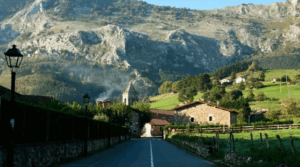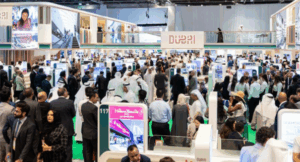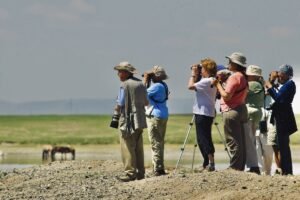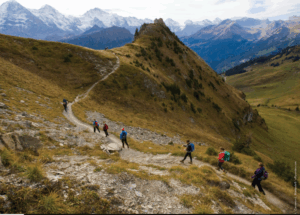The ecology of sustainable tourism
By Dr. Peter Tarlow —
The number twenty represents both a long time and a moment in history. In the Bible, twenty was the year of military maturity (Numbers 1:3). Twenty also represents a complete set. Thus Abraham Lincoln’s famous Gettysburg Address begins with the words: “Four score and twenty years ago…” Twenty then represents the transition from youth to maturity, from the brashness of youth to the wisdom of one who has lived and seen, and learned. This anniversary issue of eTurbo News reflects these same notions.
American tourism has changed greatly in these last twenty years. In 1992, the tourism industry was almost naïve in its outlook. These were the years of cheap fuel, low-cost travel, and minimal security issues. In 1992 no one could imagine homegrown terrorism such as the Oklahoma City bombings. The Oklahoma City tragedy was the forerunner to what would occur in 2001, an event that would permanently change US tourism. Indeed, the tragedies of September 11, 2001 act as a divider between tourism’s world of naiveté and the current more mature world in which the tourism industry must survive. Prior to September 11, 2001 tourism lived in a world of relatively cheap energy, global warming was barely mentioned, customer service was an essential part of marketing, and airline travel was all about the service. In the years following September 11, 2001 gas has more than quadrupled in price, global warming and green-based tourism are a constant part of the travel experience, airlines have become mere buses in the sky and we are now often pleasantly surprised when customer service is not bad. On the political front, the US still grapples with the visa issue. Today travelers need to remove shoes and belts, laptops and cellphones before getting on a plane and over the last ten years we went from ineffective and rude private security to TSS, an agency that seems to thrive on public relations blunders. Our national schizophrenic policy says to the world, come and spend your money here, but good luck in getting a visa!
Some them might argue that these last twenty years have seen tourism hit both highs and lows. Certainly there has seen a major decline in customer service and coupled with tourism inflation. Tourism has had to deal with international security issues and the worst economic crisis since the great depression.
In these last twenty years, perhaps the greatest threat to the leisure industry (and to a lesser extent to the business travel industry) is the fact that travel has lost a good deal of its romance and enchantment. In its rush for efficiency and quantitative analysis the travel and tourism industry may have forgotten that each traveler represents a world unto him/herself and quality must always override quantity. Likewise, the travel industry has lost part of its sustainability due to poor ecological standards.
Especially in the leisure travel industry, this lack of enchantment has meant that there are fewer and fewer reasons to want to travel and to participate in the tourism experience. For example, if every shopping mall looks the same or if the same menu exists in every hotel chain, why not simply stay at home? Why would anyone want to subject him/herself to dangers and hassles of travel? Do rude and arrogant front line personnel destroy the enchantment of a journey? Luckily we are now seeing signs of tourism’s renaissance. More and more American travel and tourism professionals are coming to realize that the tourism needs to return to a sense of self by emphasizing the unique in each state and community, creating enchantment through product development, and knowing that enchantment comes from the people who serve the public.
Also, evaluating the areas of a tourism experience that destroy enchantment. Tourism professionals are now coming to realize that they must grabble with lines that are too long, a lack of shelter from the weather, sun, wind, cold etc., rude service personnel, personnel that neither listen nor care, traffic jams and airport hassles, a lack of adequate parking, and no one who is willing to listen or own a complaint.
Twenty years ago, tourism was much more of a fly-by-the seat-of-your-pants industry. Today’s tourism professional is very different from his or her counterparts of decades past. Not only does the tourism professional have access to a much greater variety of data, but also city and state governments are slowly coming to realize that tourism must be nourished if it is to grow. This growth has come to be known as sustainable tourism. Due to both academic research and publications such as eTurboNews tourism leaders now know that sustainability happens when a community is best at being itself and respecting its own sense of beauty. One way to create the basis for a sustainable tourism program is by being green and beautifying a locale. No one likes visiting a place whose streets are psychologically cold, a place that lacks both inner and outer beauty. In tourism being “green” is not only what a tourism location does on the outside but also about what a city accomplishes on its inside, discovering what is its inner essence then promoting it.
Today’s tourism professionals seek to create sustainable tourism by:
Checking for ways to create enchantment. Enchantment means working with specialists in such areas as lighting, landscaping, color coordination, exterior and interior decorations, street appearances and city themes, parking lots and internal transportation service. Utilitarian devices, such as the San Francisco trolley cars, can be vehicles of enchantment if they enhance the environment and add something special to a particular place.
Coordinating festivals and other events with the ambiance of the place. Festivals often do best when they are integrated within the community rather than taking place outside of town. In-town festivals that are part of the community’s genre not only add to the charm but also can be a boom to local businesses rather than a reason for money to leak out of the community.
Creating a safe and secure atmosphere.To create such an atmosphere local security professionals must be part of the planning from the beginning. Tourism security is more than merely having police or security professionals hanging around a site. Tourism security requires psychological and sociological analysis; the use of hardware, interesting and unique uniforms, and careful planning that integrates the security professional into the enchantment experience. Enchantment oriented communities realize that everyone in the community has a part to play in creating a positive tourism experience and one that creates a unique and special environment not only for the visitor but also for those who live in the community.
Tourists and visitors appreciate the opportunity to see more than the major sites, they also want to see the real locale, its city or landscapes, its gardens and its parks. America is rich in these “other attractions”. Tourism is not only about visiting New York but also understanding what a farm is like in Iowa or experiencing New England village life. America’s tourism leaders are beginning to understand that visitors seek to go beyond a place’s outer shell to the potential of a community’s soul. There is no community in the United States from Las Vegas’ casinos to Charleston South Carolina’s mansions, from the oilfields of Texas to Hawaii’s beaches that does not have a story to tell.
Twenty years is a long time in the life of a very young industry. It is an industry that comprises restaurants and hotels, cruises and skiing, museums and Broadway shows, casinos, and both private and public transportation. American tourism is a secular pilgrimage to Washington, DC and hiking along the Appalachian trail. This diverse land offers the Grand Canyon and the enchantment of New Mexico’s Sandia’s Mountains, the sophistication of Boston and the frontier life of Alaska. Over these last twenty years people from around the world have come to American and come to appreciate this nation’s tourism diversity. Yes these last twenty years have been ones that have challenged tourism for reasons of security and economic ups and downs, and through twelve years of it, eTurbo has been there for tourism professionals and industry leaders. Happy birthday, eTurboNews! May you go from strength to even greater strength.
Dr. Peter E. Tarlow is President of Tourism and More Inc.,USA Courtesy : eTurboNews














